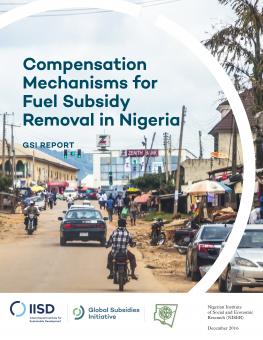
Compensation Mechanisms for Fuel Subsidy Removal in Nigeria
This study conducts a detailed analysis of the compensation mechanisms that could be used to mitigate the impact of fuel subsidy removal on weak and vulnerable segments of Nigerian society.
Since the end of 2015, the Buhari government has introduced major reforms to gasoline and kerosene subsidies, with a new “price modulation” policy that has seen upward adjustments in the price of both fuels—at the same time that major problems with supply continue, driving domestic prices above official levels in many areas.
This study conducts a detailed analysis of the compensation mechanisms that could be used to mitigate the impact of fuel subsidy removal on weak and vulnerable segments of Nigerian society. The study suggests actionable proposals that the government could pursue if it decides that it must mitigate the social impact of ongoing future price increases as well as pro-poor policies in which the government could invest as part of its general budgeting, given the fiscal space created by subsidy reforms.
Participating experts
You might also be interested in
Nigeria Must Ensure its Fuel Subsidy Reform Sticks for the Long Term
Nigeria's new president, Bola Tinubu, removed gasoline subsidies right after he was sworn in on May 29, 2023. To find out what this means for Nigeria and how the country can make this reform a success, IISD's Energy Communications expert Aia Brnic talked with fossil fuel subsidy expert Dr. Neil McCulloch.
The Next President's Fuel Subsidy Challenge
The next Nigerian president will have their job cut out for them. Whoever wins the February 25, 2023 presidential election will be taking over a country that is neck-deep in serious economic, political and security crises, assuming all goes well with the election in the first place.
Are Countries Walking the Talk on Cutting Carbon?
In the race against climate change, increasing ambition over time is key. But revised commitments from parties to the Paris Agreement lack two critical components of ambitious climate action.
Gender and Fossil Fuel Subsidy Reform in Nigeria: Findings and recommendations
The report examines from a gender perspective the impact of kerosene subsidies and their reform in Nigeria, finding that kerosene subsidies did not work for poor women.